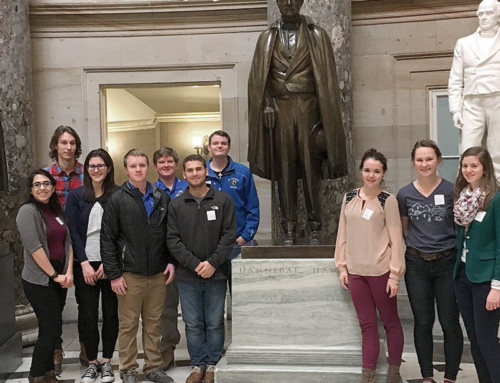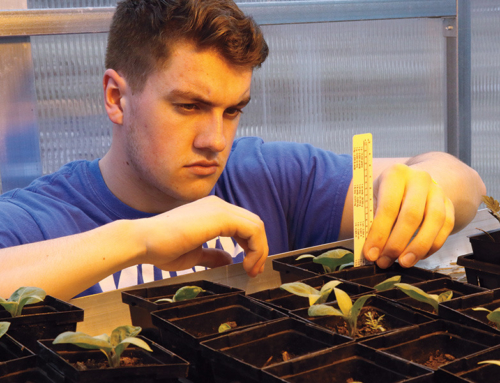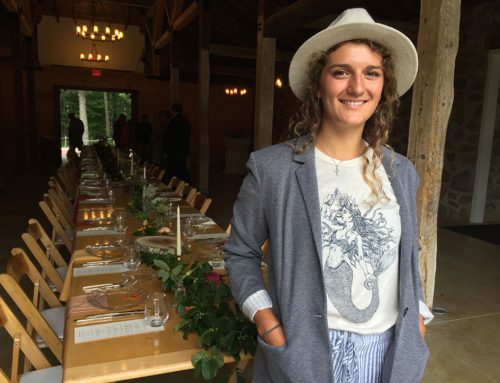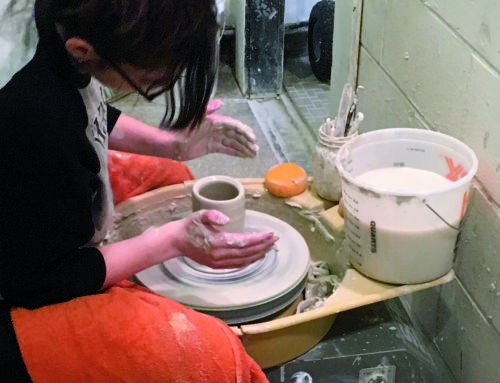Lane Hubacz shares his work at the cutting edge of aquaculture
by Patricia Erikson
"Not only are we helping to establish a sustainable food source, we can grow the business as much as we want to. That’s really appealing to me. I’m in it for the long haul."
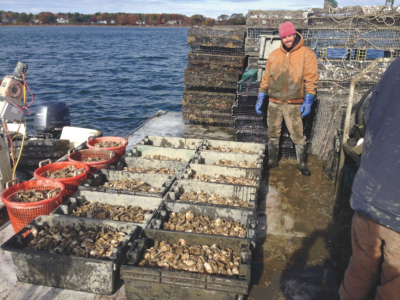
Lane Hubacz harvesting Basket Island Oysters. Photo: Mark Green.
When Lane Hubacz ’09 interned with Professor Mark Green, he was studying marine science and chemistry. He probably couldn’t have guessed that it would change his life. “Once in awhile, I would go out on Casco Bay with him. I had never heard of aquaculture before I went to Saint Joseph’s College and met Mark. After college, I worked on National Science Foundation grants with him. This was ocean acidification research and its impacts on shellfish—specifically clams—in the mudflats of Portland, Falmouth, and the Cumberland area. He wanted to scale up his aquaculture production and bring me with him. We would go out on his boat a couple of times a week. I loved being out on the water.”
Lane’s experience hasn’t been restricted to one shellfish species, however. “I also worked on a mussel farm for about four years. The past couple of years I have shifted to working full time for Mark and helping to build his oyster farming business.” Lane refers to Mark Green’s business, known as Basket Island Oysters. He said, “We just got into scallop farming, too, last year. Seafood farmed with aquaculture only makes up a tiny percent of the market in the United States. Most of the seafood we eat in the States is imported. From a business point you don’t know how high it will go.
“It can be stressful at times dealing with live creatures; there’s lots of tending and husbandry involved. But when you meet restaurant owners and they thank you for how much they love the oysters, it’s really good to hear. Not only are we helping to establish a sustainable food source, we can grow the business as much as we want to. That’s really appealing to me. I’m in it for the long haul.”
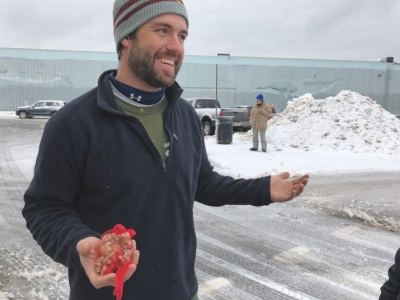
Lane Hubacz ’09 can be spotted on the Portland waterfront in all weather where he stages shellfish to transport to restaurants and distributors. Photo: Patricia Erikson.
The Portland Press Herald’s “Source” featured Basket Island Oysters this winter.
